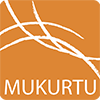Central Western Plains: Gamilaraay language and dance (yulu-gi) project off Country
Yulu-gi ngiyani
We're fortunate here, to be here in Orange Grove. We've got the opportunity to come in and teach Gamilaraay language. And we wouldn't be able to do that without the Principal here and the community opening up the space for us now. At this school, there's over 900 students, and probably about 15 of them are Indigenous. So, to be able to open it up for us, to be able come in and actively work with our Indigenous students is pretty special. Now, the parents, coming from different Indigenous backgrounds and heritages and communities, are not Gamilaraay, but they've opened it up and allowed us to teach their kids Gamilaraay, which is a really great learning and strengthening building for young people.
So, at the moment, we're just doing language classes, two days a week for an hour, which is really great. We're hoping to build on that. So, last year we had Miss Marie Walford, which was really great. She had come in and worked with the kids before I had been here, and she had really opened up these young minds to language, and they were really reciprocal, they picked up a lot. And when I first came in, I did a word count list, first lesson, and they regurgitated over 30 Gamilaraay words.
So, at the moment, working on a dance project. This is how, then, the language transforms from just basic, "maal, bulaarr, gulibaa," our one, twos and threes, into dance world, where we start to yulu-gi, we start to dance, or yulu-gi lana, "we dance now", and how we start to use language as another tool within that space. So, it's been really good to use yulu-gi, "dance", as a way to inform our young people.
So long, we were not allowed to teach our languages or even speak our languages, I should say, and it's really good and it's really great to see that at the moment we've had something within government come down to say that we're now allowed to celebrate, teach and enjoy our languages. And not only that, we get to empower the next generation of young children that didn't have the opportunity ten years ago. I know I didn't have the opportunity ten years ago, our parents didn't have that ten years before that.
So, we're the next generations of young people that are asserting our ways and being determined by repatriating our languages, reinvigorating our languages. And not only that, we're actually applying our languages, so we're at a really great point here. Who knows where we'll be in 20 years' time?




